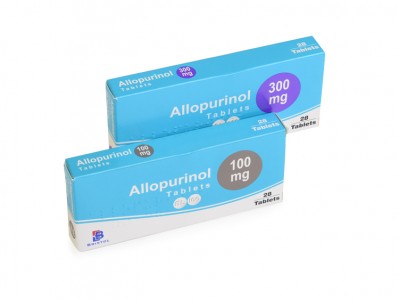Understanding the Importance of Precautions Before Taking Allopurinol
Before starting any medication, it is crucial to share specific details about your health with your provider. If you are considering Allopurinol for gout or other conditions, there are certain things your doctor must know. This guide provides key information on what should I tell my health care provider before I take Allopurinol to ensure safe and effective use.
Why You Should Share Your Medical History
One of the most critical steps is discussing your medical history with your provider. Your health background can affect how Allopurinol works in your system. Sharing details helps your provider determine if the medication is suitable and if any adjustments are necessary to prevent adverse reactions. Specific questions include whether you have any kidney problems, which can impact Allopurinol metabolism and safety.
Allopurinol and Potential Drug Interactions
Allopurinol can interact with various drugs, altering its effectiveness or increasing side effects. If you are taking other medications, your provider should know to avoid possible interactions. One of the top considerations is Allopurinol and drug interactions with common treatments for other conditions. Medications for blood pressure, certain antibiotics, and anticoagulants may interact with Allopurinol, so being open with your provider is essential.
Informing Your Doctor About Allergies
It’s critical to inform your provider about any known allergies. Some people may have allergic reactions to Allopurinol, which can manifest as rashes, fever, or more severe reactions. Therefore, a vital precaution is discussing informing doctor about allergies before Allopurinol to prevent complications.
Considerations for Individuals with Kidney Problems
Those with kidney problems should take extra caution when considering Allopurinol. Since the medication is processed through the kidneys, existing kidney issues may lead to reduced clearance and potential toxicity. It's essential to understand the implications of Allopurinol use with kidney problems and adjust dosages if necessary.
Medications and Substances to Avoid
Certain substances may not combine well with Allopurinol. Your provider can offer guidance on what to avoid when on Allopurinol to reduce adverse reactions. For instance, over-the-counter pain relievers, alcohol, and high doses of Vitamin C may lead to complications when taken alongside Allopurinol.
The Importance of Sharing Your Full Medication List
Besides discussing specific interactions, it’s helpful to share your full list of medications. This allows your provider to evaluate Allopurinol and other medications that might conflict or enhance side effects. Being transparent ensures that no conflicting substances are present, reducing the chance of an adverse reaction.
Discussing Potential Side Effects and Risks
It’s essential to know the risks and side effects associated with Allopurinol. Speaking to your provider about potential side effects allows you to monitor any unusual symptoms and take preventive action if necessary. Addressing side effects and Allopurinol precautions helps build awareness and prepare for any health changes that may arise.
How Allopurinol Relates to Treating Gout
Allopurinol is commonly prescribed for managing gout, a condition characterized by high uric acid levels. However, it’s crucial to understand Allopurinol for gout – what to discuss with doctor. Your provider can help determine the proper dose and monitor for side effects, adjusting the treatment as needed to optimize results and minimize risks.
Summing Up: Key Information for Safe Allopurinol Use
Ensuring safe and effective use of Allopurinol requires proactive communication with your provider. Discussing your medical history for Allopurinol use, allergies, potential interactions, and existing health conditions can help tailor the treatment to your needs. Taking these steps seriously can contribute to a smoother treatment experience with fewer complications.

